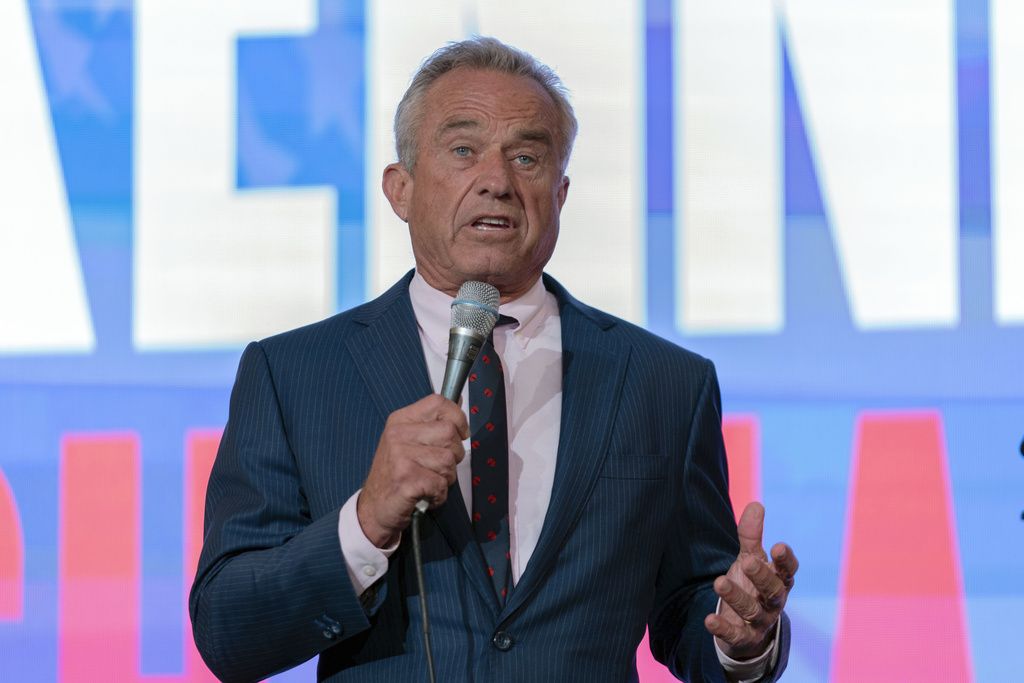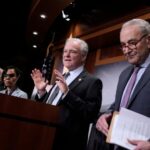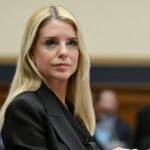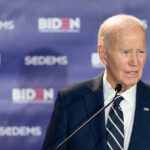
Robert F. Kennedy Jr. filed a new complaint with the Federal Election Commission alleging that CNN collaborated with the Biden and Trump campaigns to exclude the third-party candidate from a June 27 debate.
In the complaint filed on Tuesday, Kennedy alleged the entities colluded to prepare debate criteria “that were designed to result in the selection of certain pre-chosen participants, namely Biden and Trump, in a clear breach of federal campaign finance law.”
The Kennedy campaign pointed to a Washington Post story earlier this month that alleges Biden advisers told CNN the president would only participate in a one-on-one debate with Trump next month in Atlanta, Georgia, a factor that would exclude Kennedy.
The story also alleges that a Trump campaign official was told by a CNN producer that “RFK will not be on the stage.”
A “Biden Committee” letter to the Commission on Presidential Debates pushing for a one-on-one debate with former President Donald Trump was also cited in the complaint. President Joe Biden and Trump bypassed the Commission on Presidential Debates to appear in the CNN debate next month and an ABC News debate in September.
These actions, according to the Kennedy campaign, violate the Federal Election Campaign Act.

“CNN is making prohibited corporate contributions to both campaigns and the Biden Committee and the Trump Committee have accepted these prohibited corporate contributions,” the complaint states.
CNN’s qualification criteria for the debate include a candidate gaining enough access to state ballots to reach the 270-electoral-vote threshold by June 20 and receiving at least 15% in four national polls conducted by one of at least 12 selected pollsters of registered or likely voters.
Kennedy claimed he gained access to nine state ballots — California, Delaware, Hawaii, Michigan, New Jersey, New York, Oklahoma, Texas, and Utah — totaling 171 electoral votes.
But Kennedy has only met three of the four national polls needed to qualify for the debate: a Marquette Law School poll with the third-party candidate at 17%, a CNN poll with him at 16%, and a Quinnipiac poll with him at 16%.
In a statement to the Washington Examiner, CNN pushed back against the collusion allegations.
“The law in virtually every state provides that the nominee of a state-recognized political party will be allowed ballot access without petitioning,” a CNN spokesperson said. “As the presumptive nominees of their parties both Biden and Trump will satisfy this requirement. As an independent candidate, under applicable laws RFK, Jr. does not. The mere application for ballot access does not guarantee that he will appear on the ballot in any state. In addition, RFK, Jr. does not currently meet our polling criteria, which, like the other objective criteria, were set before issuing invitations to the debate.”
Biden and Trump have not technically been selected by their parties to be the presidential nominees. That will happen in July for Trump at the Republican National Convention and on June 4 for Biden during a virtual nomination process scheduled to comply with an Aug. 7 ballot deadline.
But both candidates are the presumptive nominees after surpassing the delegate threshold and are generally considered to be on the ballot in all 50 states by the November election.
Kennedy’s complaint asks the FEC to block the debate from happening on June 27 “until the Parties have come into compliance with the Federal Election Campaign Act.”
Eligibility for the debate opened on March 13 and closes on June 20, seven days before the debate, meaning Kennedy still has time to attempt to qualify.
CLICK HERE TO READ MORE FROM THE WASHINGTON EXAMINER
Biden and Trump have attempted to downplay Kennedy’s chances of spoiling the election. It is unclear whose candidacy he would hurt the most, but Democrats have created teams to counter Kennedy, fearing a 2016 reprise of Jill Stein playing spoiler to former Secretary of State Hillary Clinton.
The Trump campaign did not respond to the Washington Examiner’s request for comment. The Biden campaign directed the Washington Examiner to the Democratic National Convention, which declined to comment.





